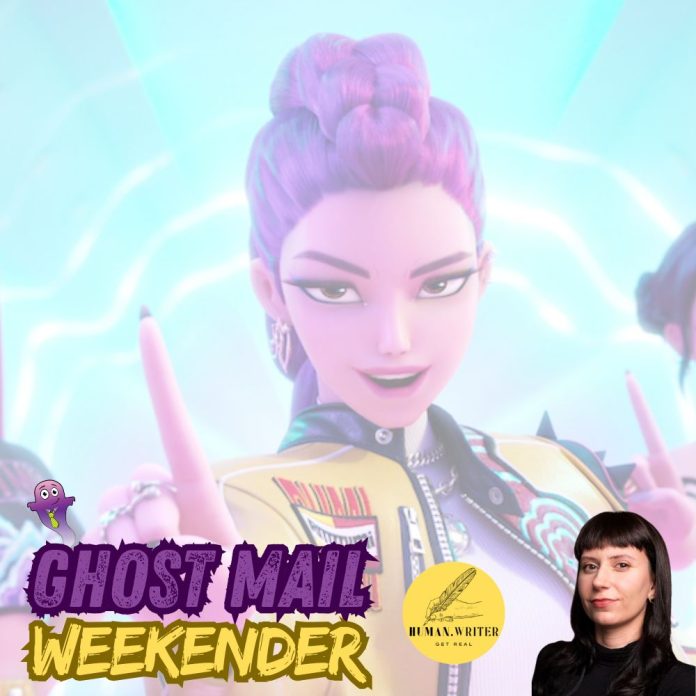Sony Pictures went into the summer of 2025 hungry for a blockbuster. What it got instead was a bruising reminder that timing, contracts, and a little bit of bad luck can rewrite the rules of Hollywood. This is the story of megahit KPop Demon Hunters and a tale of how different risk cultures at Sony and Netflix led to this outcome.
By the time the popcorn buckets were swept up and the box office receipts were tallied, Sony stood alone as the only major studio without a single $500 million–grossing film from May through August this year (this timeline coincides with the US summer, which is traditionally when cinemas make the most money). Its biggest box office hit of the year so far, 28 Years Later, limped to just over $150 million worldwide. For Sony, the countdown to their next big release – 2026’s Spider-Man: Brand New Day – can’t tick by fast enough.
Although technically, Sony actually did make one of the biggest cultural sensations of the summer. It’s just inconvenient that Netflix is feasting on most of the spoils.
A monster hit, but for the “wrong” company
The film in question is KPop Demon Hunters, an anime-style, neon-drenched, $100 million animated musical about a K-pop trio who moonlight as supernatural monster fighters. In almost any other era, this would have been Sony’s dream: a franchise with built-in sequel potential, crossover music sales, and Halloween costume dominance. But despite Sony writing, making, and producing the thing, it belongs almost entirely to Netflix.
Released globally (and exclusively) on the streamer in June, Demon Hunters has been unstoppable. As it stands at time of writing this article, the film has racked up 291.5 million views, cementing its spot at No. 1 on Netflix’s all-time Top 10 list for English-language films and dethroning Red Notice as Netflix’s most-watched original film ever.
And it’s not just the movie – remember, this is a musical, so there are musicians involved too. The soundtrack, featuring both the fictional band HUNTR/X and the real-world K-pop powerhouse who voiced them, Twice, has taken on a life of its own. Seven songs currently sit in Spotify’s global Top 50, and “Golden,” the breakout anthem, has spent 11 weeks at No. 1 on the Billboard Hot 100.
Netflix, after more than a decade of trial and error in animation, finally has its megahit. If you listen carefully, you can hear the sound of Mickey Mouse quaking in his little boots.
Sony – the blood, sweat and tears behind it all – will make about $20 million from the deal, which is less than some stars pocket for appearing in Netflix originals. And while the studio does retain the rights to produce sequels or spinoffs, it gets no back-end upside from the first film’s runaway success. In other words, Sony did the work, and Netflix gets the empire.
How did Sony let this one slip?
To answer that question, we need to look all the way back to the pandemic-era dealmaking of 2021 (how does that already feel like a lifetime ago?). At the time, theaters were shuttered or running at reduced capacity, the future of cinema was uncertain, and every studio without its own streaming platform was scrambling to stay afloat.
Sony didn’t have a mass-market streamer of its own – no Disney+, no Max, no Peacock. What it had instead was a relatively solid filmmaking reputation and the option to sell its content to the highest bidder. That year, Sony inked a lucrative “Pay One” output deal with Netflix, covering theatrical films after their box office runs. Alongside it, the studio signed a separate “direct-to-platform” agreement: Netflix would get a first look at certain projects, with a guarantee to greenlight a set number of them for direct release.
Of the films that Netflix chose, Sony would receive the production budget plus a premium (i.e. profit margin) – typically about 25 percent, capped at $20 million. Netflix would own the rights outright, with no obligation to share profits or renegotiate.
Back then, it looked like a smart hedge. Theatrical grosses were shaky, layoffs loomed, and Sony needed reliable cash flow, pronto. Movies like Greyhound (sold to Apple) and The Mitchells vs. the Machines (sold to Netflix) found audiences outside of cinemas while boosting Sony’s bottom line. Even if a breakout occurred, the thinking went, the studio had guaranteed income during a turbulent era.
No one – least of all Sony – predicted that KPop Demon Hunters would be that breakout, four years after the pandemic.
Could it have worked in theaters?
Of course the billion-dollar question at this point has to be whether KPop Demon Hunters would have been a global hit if Sony had kept it for itself and released it in theatres instead.
The case for yes: the movie is a genre mashup with global appeal, featuring an anime aesthetic, a built-in K-pop fanbase, and music with real commercial traction. By the time “Golden” hit No. 1, Sony could have been printing money off concert tie-ins, merchandising, and spin-offs. A theatrical launch might have been modest at first, but could have snowballed into a full-on franchise as the earworm-quality of the songs took effect. In other words, Sony may have seen slow uptake on the first movie, but once audiences were hooked, they would have been minting it with every sequel.
The case for no: original animation has been a tough sell at the post-Covid box office. With the exception of Spider-Man: Into the Spider-Verse and its sequel, anime-style projects rarely draw mainstream audiences in large numbers. Netflix’s algorithm-driven environment may have been the perfect incubator, offering slow build, viral chatter, and music-driven discovery. In theaters, Demon Hunters might have opened soft, played well in Asian territories, and then gone on to explode in streaming anyway.
Netflix might have been the right place at the right time. But that doesn’t soften the sting for Sony.
The Netflix playbook pays off
Netflix has spent years trying to crack animation, with mostly middling results. KPop Demon Hunters gives it more than just a hit movie – it gives it a virtual band with millions of fans worldwide. And unlike real-world pop idols, movie band HUNTR/X won’t age out of their prime, demand renegotiated contracts, or enlist for mandatory military service (looking at you, BTS).
Better still, the cast behind the voices aren’t A-list stars with big bargaining power. Netflix owns the music, the characters, and the momentum. Sequels are already inevitable, and this time the streamer doesn’t need to pay Sony for the rights.
It’s the stuff every studio boss dreams of: a relatively cheap hit that spawns multiple revenue streams, from music to merchandise to future films. The upside for Netflix really is nearly limitless.
No risk, no reward
Sony has long argued that it “won” the streaming wars by refusing to launch its own platform. Unlike Warner Bros. or Disney, it didn’t pour billions into trying to beat Netflix at its own game. Instead, it played the middleman, selling films to whichever streamer paid most. That strategy insulated Sony from the streaming bloodbath, which meant no ballooning subscriber-acquisition costs, no shareholder fury, and no need to explain billion-dollar losses to shareholders.
But the KPop Demon Hunters saga shows the downside of being the arms dealer. Sometimes you sell the weapon that wins the war, and someone else plants the flag.
In the end, KPop Demon Hunters is a parable about timing, contracts, and the unpredictable alchemy of hits. In 2021, selling to Netflix looked like a safe bet – keep the lights on, avoid layoffs, hedge against a wobbly theatrical landscape. In 2025, it looks like Sony accidentally sold off the crown jewels. And Hollywood, never one to pass up a narrative, will keep asking the same question: What if Sony had just taken the risk and released KPop Demon Hunters itself?
About the author: Dominique Olivier

Dominique Olivier is the founder of human.writer, where she uses her love of storytelling and ideation to help brands solve problems.
She is a weekly columnist in Ghost Mail and collaborates with The Finance Ghost on Ghost Mail Weekender, a Sunday publication designed to help you be more interesting. She now also writes a regular column for Daily Maverick.
Dominique can be reached on LinkedIn here.





I look forward to Sundays to read your stories.
This makes my Sunday.
Thank you.
I love this comment, thank you Derek! Loyal readers like you keep me writing
Great article as always. Hindsight is always 20-20 therefore neither Sony nor Netflix could have known. Perhaps it is also a case of sticking to your knitting no matter what. To your analogy, you may not be the one winning the war and planting the flag, but for as long as there is a war you are guaranteed to make some money as an arms dealer. Thanks again for ever insightful and relevant articles.
You’re welcome David – I’m glad you enjoyed it!
Great article 🙏
My kids saw the movie at the end of the June holidays. Once they went back to school, they discovered that some of their classmates had already seen the movie eight times 😅 That’s when I knew that this is a cultural phenomenon of note.
It reminded me of Frozen but this is way bigger, probably because of the older target market. “Let It Go” only reached No. 5 on the Hot 100… Even now, the Top 10 of the Hot 100 still includes four songs of the movie!
It has three female leads and it appeals to both boys and girls equally in my limited sample space, which is great. I’ve been humming “Golden” just this morning, dunno why 😅